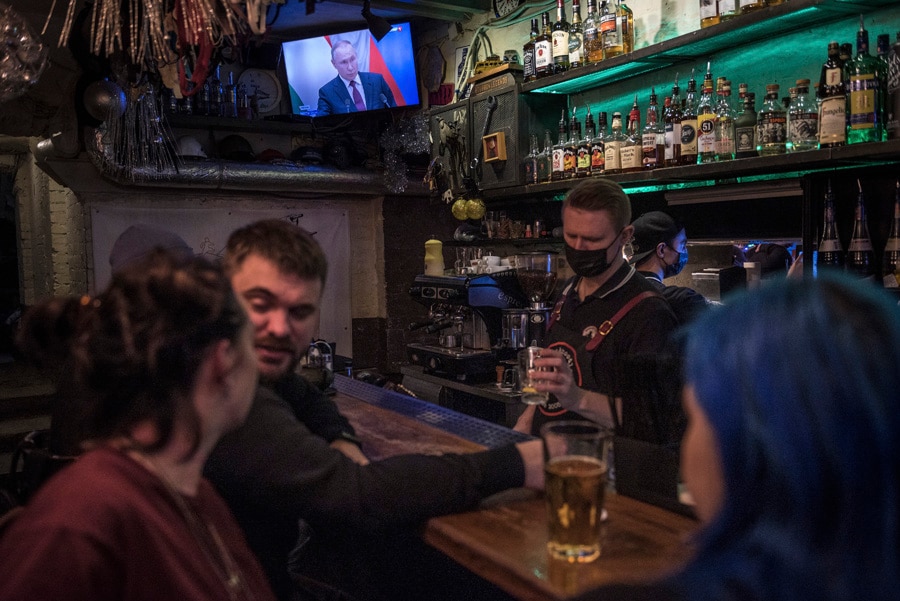
Putin, facing sanction threats, has been saving for this day
Over the past several years, Putin, Russia's president, has restructured his country's economy for the specific purpose of withstanding Western financial pressure
 People talk at a bar as President Vladimir Putin is seen on a TV in Moscow, Feb. 1, 2022. Since paying the price for annexing Crimea in 2014, Russia has tried to make its economy sanctions-proof, hoarding currency to insulate the country. (Sergey Ponomarev/The New York Times)
People talk at a bar as President Vladimir Putin is seen on a TV in Moscow, Feb. 1, 2022. Since paying the price for annexing Crimea in 2014, Russia has tried to make its economy sanctions-proof, hoarding currency to insulate the country. (Sergey Ponomarev/The New York Times)
Vladimir Putin’s posture toward the West through the recent Ukraine crisis seems unusually defiant, even for him. But there may be more behind his confidence than military power or empty bravado.
Over the past several years, Putin, Russia’s president, has restructured his country’s economy for the specific purpose of withstanding Western financial pressure.
Russia has drastically reduced its use of dollars, and therefore Washington’s leverage. It has stockpiled enormous currency reserves, and trimmed its budgets, to keep its economy and government services going even under isolation. It has reoriented trade and sought to replace Western imports.
Russian economic officials “are pretty proud, and have good reasons to be, for the work they have done to make the Russian economy more immune to sanctions,” said Alexander Gabuev, a senior fellow at the Carnegie Moscow Center.
This transformation, among the most dramatic examples of what is known as “sanctions-proofing” worldwide, comes less than eight years after Western sanctions over Moscow’s annexation of Crimea in 2014 mired Russia in economic and political upheaval.
©2019 New York Times News Service







